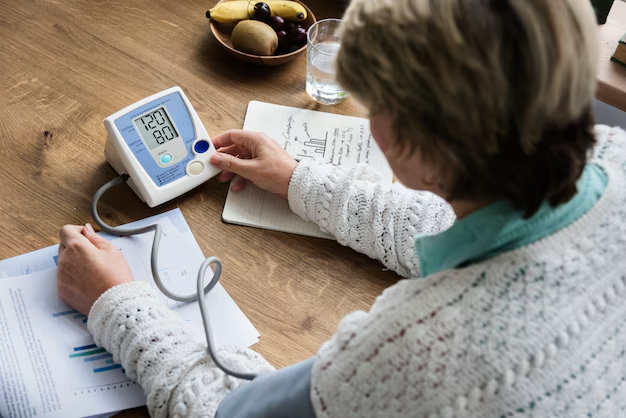Your Guide to Can You Die From Hypertension
What You Get:
Free Guide
Free, helpful information about HyperTension FAQ and related Can You Die From Hypertension topics.
Helpful Information
Get clear and easy-to-understand details about Can You Die From Hypertension topics and resources.
Personalized Offers
Answer a few optional questions to receive offers or information related to HyperTension FAQ. The survey is optional and not required to access your free guide.
Can Hypertension Be Fatal? Understanding the Risks and Solutions
Hypertension, commonly known as high blood pressure, often acts as a silent menace—dormant yet potentially deadly. But can it really lead to death? The stark answer is yes. Unmanaged hypertension can severely damage your heart, brain, kidneys, and vascular system, putting you at risk for life-threatening conditions like heart attack, stroke, and kidney failure. Understanding this risk is the first step in taking proactive measures to protect your health.
Why Is Hypertension Dangerous?
High blood pressure puts extra strain on your heart and blood vessels, leading to the development of cardiovascular diseases. The heart may become enlarged or weakened, the arteries damaged or narrowed, and over time, the implications are significant:
- Heart Attack and Stroke: Hypertension can cause blockages in the arteries, resulting in heart attacks or strokes. Both conditions are responsible for most hypertension-related deaths.
- Kidney Damage: High blood pressure can damage blood vessels in the kidneys, impacting their ability to effectively filter waste from the body.
- Eye Damage: It can also harm blood vessels in the eyes, potentially causing vision loss.
- Aneurysms: Increased pressure may weaken and swell blood vessels, leading to potentially fatal aneurysms.
Managing Hypertension
The good news is that hypertension is manageable. Lifestyle modifications can significantly lower your blood pressure and risk of complications. Here are a few ways to take control:
- Healthy Diet: Adopt a diet rich in fruits, vegetables, and whole grains while reducing salt, fat, and sugar intake.
- Regular Exercise: Aim for at least 150 minutes of moderate aerobic activity each week.
- Limit Alcohol and Quit Smoking: Both are contributing factors to high blood pressure.
- Regular Monitoring and Medication: With consistent check-ups and adherence to prescribed medications, hypertension can be effectively controlled.
Financial and Educational Support for Managing Hypertension
Managing hypertension often requires a multi-faceted approach beyond just lifestyle changes, involving regular health check-ups and sometimes costly medications. If financial constraints deter you from getting the care you need, consider exploring available resources:
- Government Aid Programs: Programs such as Medicaid offer medical assistance to low-income individuals and families, providing coverage for doctor visits, medications, and hospital care.
- Non-Profit Organizations: Groups like the American Heart Association may offer resources or can guide you to local support networks that assist with healthcare costs.
- Pharmaceutical Assistance Programs: Many pharmaceutical companies offer programs to help those who can't afford their medications.
- Educational Grants: If you're studying healthcare or a related field, numerous grants and scholarships are available, which could lighten your financial burden.
Being proactive about hypertension not only prolongs life but enhances quality of life. By understanding the risks and taking advantage of available resources, you empower yourself to live healthier and longer.
Helpful Financial Resources 💰
- Medicaid: Healthcare aid for low-income households.
- American Heart Association: Provides guidance on managing heart health and accessing community resources.
- Pharmaceutical Assistance Programs: Discounts or free prescriptions for those in need.
- Educational Grants: Scholarships for healthcare-focused education to reduce financial burdens.
What You Get:
Free HyperTension FAQ Guide
Free, helpful information about Can You Die From Hypertension and related resources.

Helpful Information
Get clear, easy-to-understand details about Can You Die From Hypertension topics.

Optional Personalized Offers
Answer a few optional questions to see offers or information related to HyperTension FAQ. Participation is not required to get your free guide.


Discover More
- a 66 Year Old Female With a History Of Hypertension
- Are Eggs Bad For Hypertension
- Are Eggs Good For Hypertension
- Are Endocrine Disorders Causing Hypertension Rare
- Can Adderall Cause Hypertension
- Can Alcohol Cause Hypertension
- Can Allergies Cause Hypertension
- Can Anemci People Get Hypertension
- Can Anemia Cause Hypertension
- Can Antibiotics Cause Hypertension
